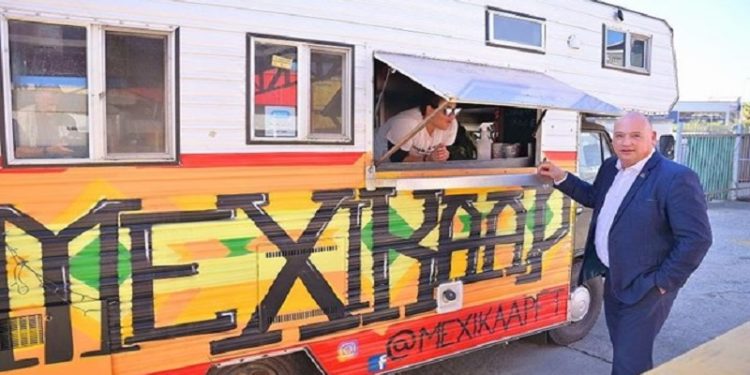By Tauhierah Salie
The City of Cape Town has drafted a Mobile Business Policy to support an increasing number of businesses operating from vehicles and trailers. In light of tight economic situations, entrepreneurs have launched food trucks, barber shops and clothing outlets from their automobiles.
It follows the withdrawal of Covid-19 restrictions, which hampered economic growth and led to thousands of job-losses in 2020. Several sectors were temporarily shut down or the workforce reduced. The cost of living has consistently increased since then, with the Ukraine-Russia conflict sparking global fuel and food security concerns.
The cost of property in the Western Cape, and particularly Cape Town, is significantly higher than most provinces, given its economic input to the GDP, mostly in the tourism sector. Aspiring business owners report that renting buildings or allocated plots has become progressively tough on the pocket.
Informal traders have persistently cited red-tape issues over permits, fingering local law-enforcement as oppressive. Officials meanwhile defend the execution of their duty as ensuring compliance and upholding law and order.
The annual increase of City tariffs such as rates and electricity, set at 4.6 percent this year, also kicked in from the 1 July.
According to the City, the latest policy suggests the following:
- (that) the proposed definition for a mobile business allows for truck-type businesses, businesses that are towed via a trailer and where the self-contained trailer operates as the business. Mobile Business Operators will need to be registered with the City, and have attained the necessary licenses as outlined within this policy (i.e. Business Licence, Certificate of Acceptability).
- Rules, roles and responsibilities of the City and business owners of these services, which ranges from the permit application and approval processes to the operating do’s and don’ts that encourages an enabling business environment.
- Introduces the concept of Mobile Business Trading Areas (MBTAs) which will permit mobile business activity in select areas within the municipality.
- Proposal that it only applies to City land; not to private land and events.
Mayco Member for Economic Growth, James Vos, welcomed the innovation of citizens, stating that the policy seeks to ease the process for businesses to apply and operate.
“I am excited to announce our plans of a pro-growth agenda that involves strategies to improve productivity, income, and demand for the benefit of businesses. We are confident that with the help of Cape Town, the City will be able to finalise the definition for mobile business and devise a workable system that lawfully supports this sector and creates an enabling environment that is a catalyst for further economic activity,” said Vos, in a statement.
The City’s Economic Growth Directorate has urged the public to weigh in on the draft policy, which opened for month-long public comment on Friday, 1 July 22, and draws to a close on 31 July 22. ‘
VOC






 WhatsApp us
WhatsApp us 

